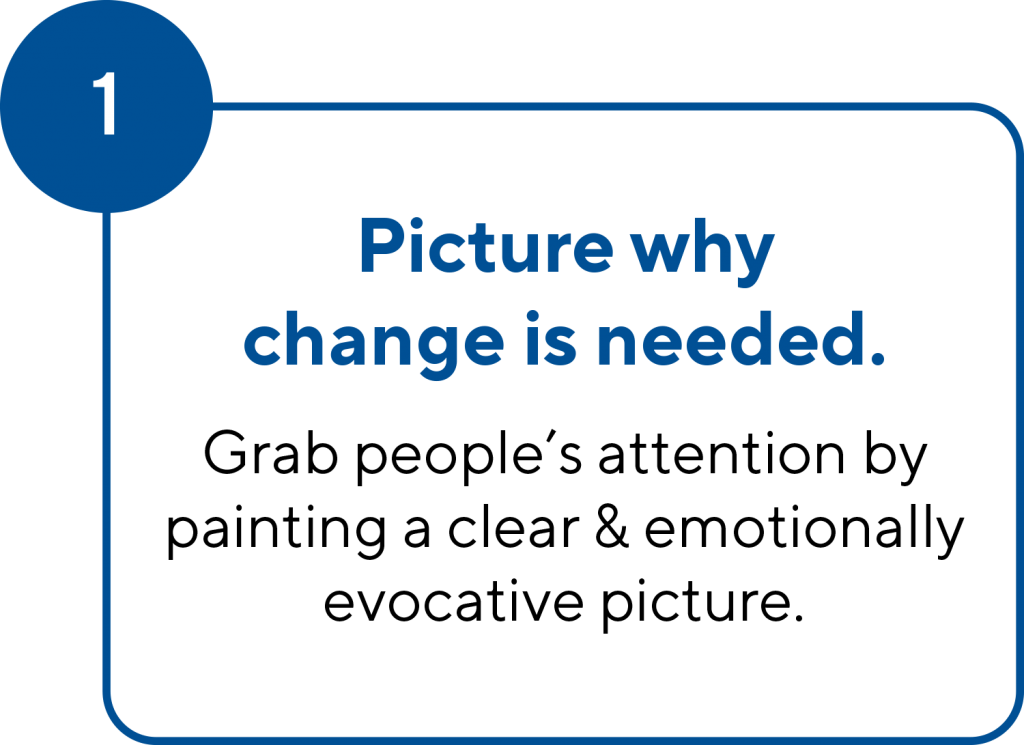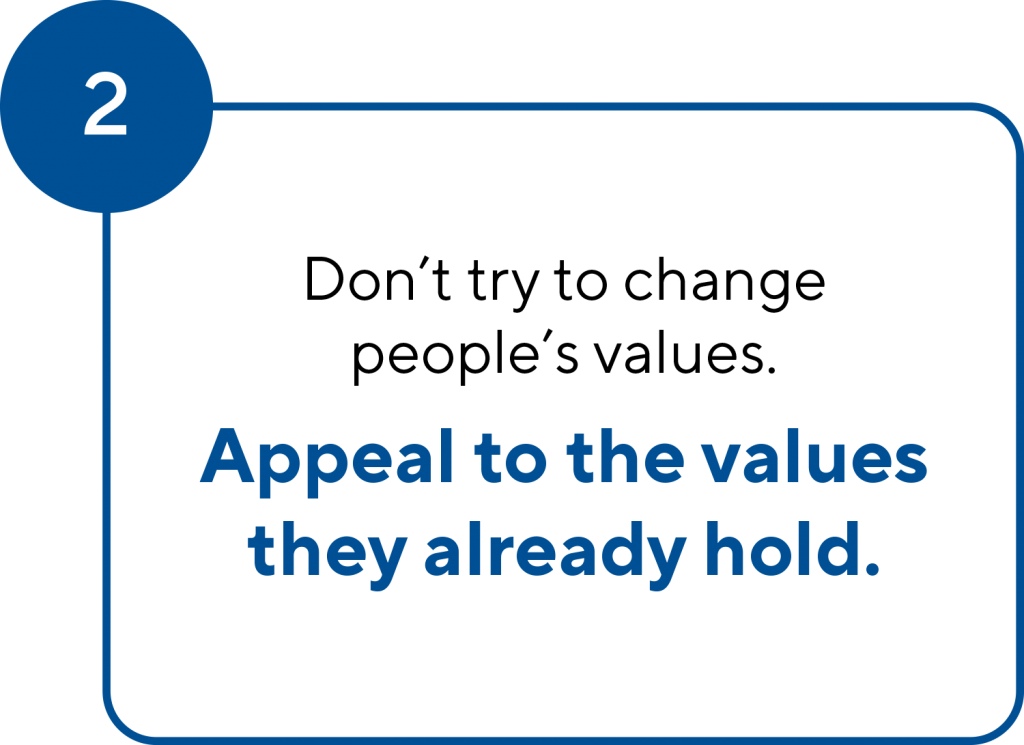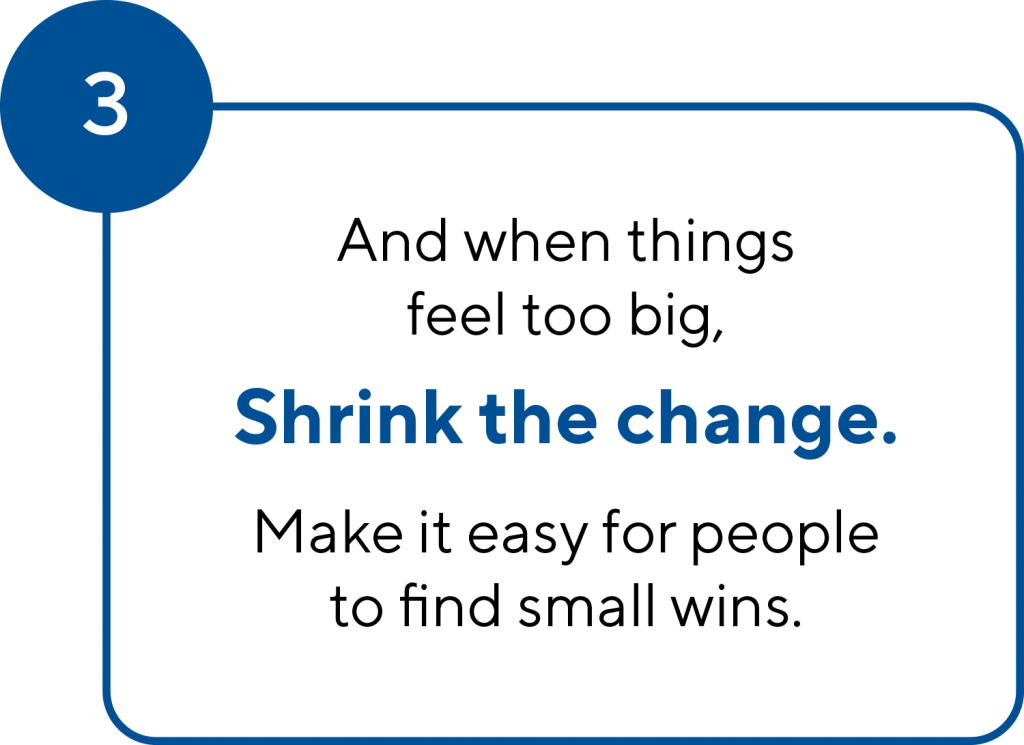Topic 4: Final words and resources before you go
We aim to achieve a healthy environment where the healthy choice is the easy choice for all European citizens. Yet, making the choice to adopt a healthy lifestyle is not easy.
In fact, research indicates that lifestyle changes happen more readily and last longer if individuals have a support person to encourage them along the way (Reed, 2013).
At 
But, as mentioned, achieving organisational or personal change is not easy. In fact, society tends to mark a turning point as a “choice” when it seems easy and rewarding, or a “change” when it leads to more challenges to overcome. That’s because one’s instinct to be content with “the devil you know” could also be described as human resistance to change! So, before you get into the modules we would like to offer one last prerequisite tool: The 3 steps to change. In their book “Switch: How to Change Things When Change Is Hard”, the Heath brothers, Dan and Cheap, point out three key steps for motivating people to change.
We believe these steps can help you achieve transformative change.
This is the end of our introduction module. Should you want to spend some more time developing your knowledge, we advise you to browse the following additional resources.
A list of additional resources
Name of the resource | What to expect/find | Why it’s useful |
|---|---|---|
Podcast “Worklife” with Adam Grant 🔗 | More about change-making and inspiring examples for each of the 3 steps to change | It will help you capture some basic techniques to work on behavioural change. |
The 5Cs of coaching 🔗 | The 5Cs is an evidence-based framework that was developed to help athletes, coaches, parents, and practitioners to thrive in sport and through the challenges that sport offers. | It will equip you with an accessible conceptual and educational framework to help create a supportive environment. Use it as a compass. |
The Economy of Wellbeing model🔗 | The Economy of Wellbeing model puts the focus on health and wellbeing-in-all-policies, and reducing environmental, work-related, and economic stressors. This approach strengthens resilience and contributes to better health outcomes and preventing diseases. | A guiding compass and a tool to help you convince your funders and stakeholders, including tips to embed the Economy of Wellbeing within policies and systems. |



